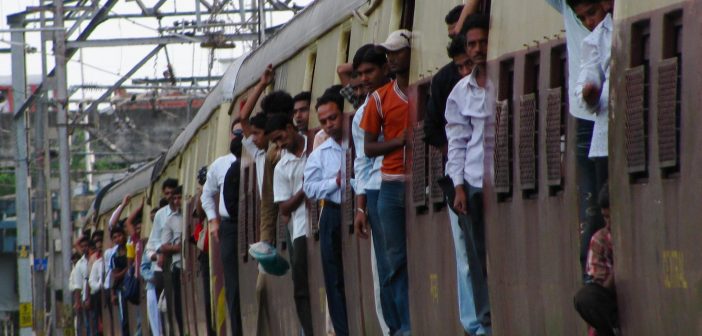Mumbai’s local train network, the lifeline of the city, pulsates with the rhythm of millions daily. Yet, for many, that rhythm translates to stress—crowded compartments, jostling for space, and unpredictable delays. But fear not, Mumbaikars! With a few adjustments and innovative solutions, your daily commute can transform from a stress-fest to a manageable journey.
Understanding the Stressors:
Before strategizing solutions, let’s identify the key stressors:
- Overcrowding: With passenger loads exceeding capacity by 200-300%, personal space becomes a luxury. Mumbai Railway Vikas Corporation (MRVC) reports an average daily ridership of 8.2 million.
- Unpredictability: Delays, signal failures, and power cuts are frequent, disrupting schedules and adding to frustration.
- Safety Concerns: Theft, pickpocketing, and harassment, especially for women, are significant worries.
- Lack of Amenities: Inadequate ventilation, limited seating, and poor waste management contribute to discomfort.
De-stressing Your Commute:
Individual Strategies:
- Plan strategically: Avoid peak hours (8-10 AM and 5-7 PM) if possible. Opt for ladies’ special compartments or first class for some respite.
- Prepare for delays: Carry entertainment like books, music, or podcasts to manage waiting time. Pack water and snacks for extended delays.
- Be vigilant: Stay alert, keep valuables secure, and report suspicious activity to authorities.
- Practice mindfulness: Deep breathing exercises or meditation apps can help manage stress in crowded spaces.
- Connect with the community: Start conversations, share experiences, and build camaraderie with fellow passengers.
Systemic Solutions:
- Infrastructure upgrades: MRVC’s expansion plans aim to increase capacity and reduce crowding. This includes adding new lines, stations, and coaches.
- Real-time information: Implementing a robust network of digital displays and mobile apps for accurate delay updates is crucial.
- Enhanced security: Deploying more security personnel, improving CCTV coverage, and installing emergency buttons can deter crime and increase safety perceptions.
- Improved amenities: Installing better ventilation systems, increasing seating capacity, and improving cleanliness are essential for passenger comfort.
- Technological advancements: Exploring solutions like smart ticketing systems, mobile charging points, and on-board Wi-Fi can enhance the travel experience.
Community Collaboration:
- Passenger awareness campaigns: Educating commuters about safety precautions, responsible behavior, and reporting mechanisms can foster a safer environment.
- Feedback channels: Providing platforms for passengers to voice concerns and suggestions directly to authorities can facilitate feedback-driven improvements.
- Community initiatives: Encouraging carpooling, promoting cycling for shorter distances, and advocating for improved public transport infrastructure can contribute to a holistic solution.
Looking Ahead:
Transforming Mumbai’s local train travel experience requires a multi-pronged approach. Individual strategies can help manage personal stress, while systemic improvements and community collaboration are crucial for long-term change. By acknowledging the challenges, embracing proactive solutions, and working together, Mumbaikars can turn their daily commute into a less stressful, even enjoyable, part of their city life.






